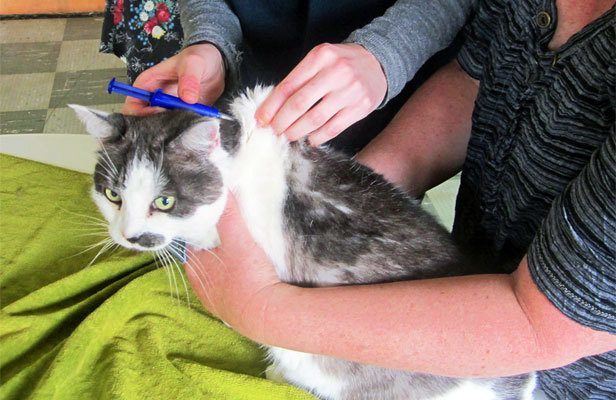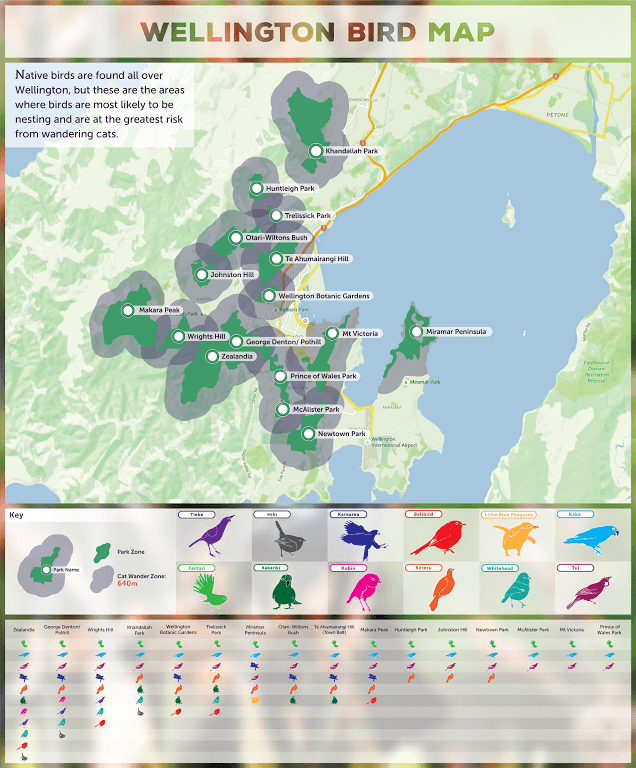Wellington City Council (WCC) is proposing some changes to the Animal Bylaw, including microchipping cats and requiring owners to ask for permission to own more than a set number of cats.
At moments like this it is remarkable to note how far we have all come, and how much organisations like the Wellington SPCA and Morgan Foundation can now agree on.
We agree that pet cats are valued members of a family.
We also agree that cats, both owned and unowned, can pose a threat to native wildlife, including birds and lizards. Cats also pose a problem for some communities neighbourhoods by fighting, soiling and spreading disease.
We agree that the ideal response to all these problems is to ensure that all cats are responsibly owned. The only question is how we get there.
In the past, the public has viewed the SPCA as the de facto cat management agency. If there are cat problems, such as those above, usually the SPCA gets called.
Actually that isn’t the SPCA’s job; their job is the prevention of cruelty. That applies to all animals, not just cats. Nonetheless, the SPCA has been the provider of last resort, particularly for cats.
Like the Morgan Foundation, the SPCA is also concerned about the fate of many native birds that are spilling out from Zealandia to colonise the city.
For that reason it is great to see Wellington City Council putting up its hand to help manage cats. For too long Councils have hospital passed the cat issue to the SPCA.
The solution the Council is proposing is a good start, though we may not always agree on how far the bylaws should go and the constraints of bylaws may require a stronger national legislative framework for cat management.
It is always difficult to enforce these sorts of bylaws, and the risk of any regulation is that it turns people off. But the Council is trying to do the right thing here.
Limits on numbers will also help prevent hoarding, while responsible owners can apply to the Council if they want to have more cats and can show they can care for them. Along with help for desexing this is a way to keep cat numbers down and make sure they are responsibly owned.
The SPCA has long supported microchipping as a way to protect cats. After the Christchurch earthquakes approximately 85% of microchipped cats were returned to owners, compared with 15% of cats without microchips. As pet cats are often seen as part of the family, microchipping plays an important part in keeping the family unit together during times of disaster.
For the Council’s purposes, compulsory microchipping may allow them to deal with cats that are found in the city’s parks where native birds are breeding. We do not anticipate or support a compliance model that would have enforcement officers patrolling for un-chipped cats.
Any cats found with a microchip would be returned to their owners safe and sound, along with conservation educational material. If the cats are unowned (no microchip), it will ideally be rehomed, and regardless of its fate the cat must be treated humanely as required under the Animal Welfare Act 1999, which the SPCA enforces.
The public seems to be buying into microchipping also. The Council’s own survey indicates that two thirds of people – including cat owners – accept that identifying their cat through a microchip should simply be part and parcel of responsibly owning a cat.
Some ask why the whole city needs to be included in this approach. We know that birds are breeding in most of the Capital’s major reserves. We also know that cats can wander around 600m from their homes.
Once you allow for a 600m radius around all parks with a documented population of native birds, most of the city is covered. Microchipping all cats in the city makes sense if we want to be able to protect native birds during fledging periods.
Regardless of your view of the proposed bylaw, we encourage you to make your voice heard – WCC have created a good submission form (the link is below) and there are more details about the proposed Animal Bylaw changes on the Council website. Submissions close 2nd May.
https://submissions.wellington.govt.nz/Default.aspx?pid=44
Article by
Steve Glassey – Wellington SPCA, Geoff Simmons – Morgan Foundation


